Courses:
Eligible students:
Teachers:
Make Things That Matter, a Complementary Contemporary Issues course, is part of the SPACE learning community. The course embraces the notion that all problems, even the seemingly intractable ones, can be solved through human ingenuity and a collective desire to improve the lives of all. Students will explore problem solving, innovation, and the future through the application of design thinking, social impact tool sets and related methodologies. A sequence of design challenges and activities linked with innovation initiatives concretize the methods. Students generate, develop and realize their own breakthrough ideas by way of learning basic skills of brainstorming, research, prototyping, and public presentations. Collaborating in groups, they may pursue any problem that aligns with the yearly theme of the course, can be related to a contemporary issue, and has the potential for a synthesis of disciplines. Final projects may be presented in a variety of public venues and linked with annual SPACE co-curricular undertakings.

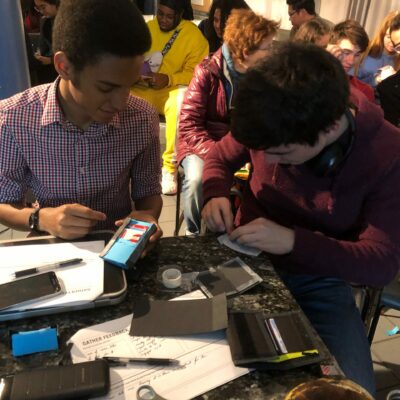
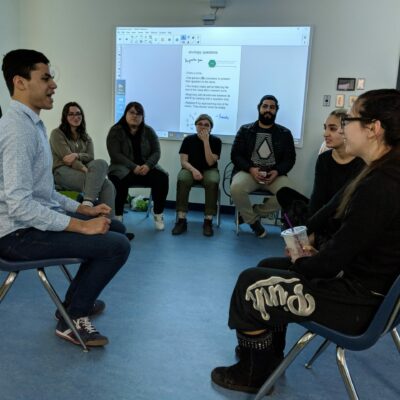
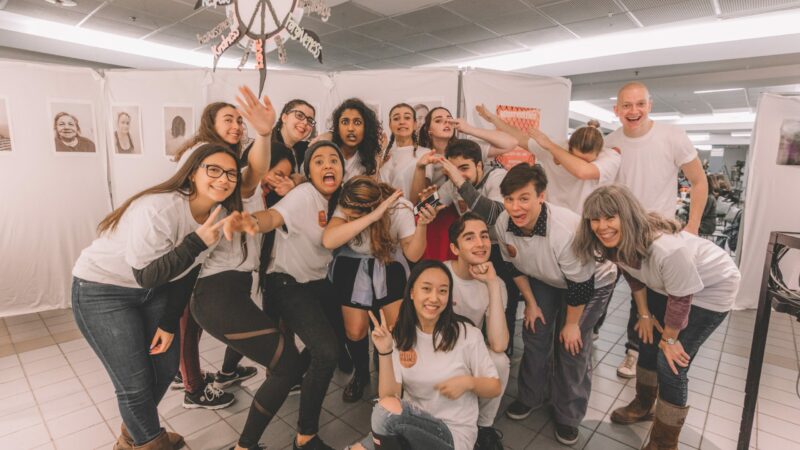 In this General Education course pairing, the focus is on an urgent contemporary issue: why is violence so widely accepted in our world and how can we build resistance. The Humanities Worldviews course questions some of our widely-held ideas about violence and explores how acceptance of violence is socially-constructed, while examining a world view that rejects violence on both ethical and practical grounds. The Cinema & Communications Contemporary Issues Complementary course provides students with the tools to deconstruct the visual language that makes violence possible, and engages them in the creation of a student-led media project that resists violence. This unique educational experience emphasizes close collaboration between students and faculty, and allows students to advance their work in both courses at the same time.
In this General Education course pairing, the focus is on an urgent contemporary issue: why is violence so widely accepted in our world and how can we build resistance. The Humanities Worldviews course questions some of our widely-held ideas about violence and explores how acceptance of violence is socially-constructed, while examining a world view that rejects violence on both ethical and practical grounds. The Cinema & Communications Contemporary Issues Complementary course provides students with the tools to deconstruct the visual language that makes violence possible, and engages them in the creation of a student-led media project that resists violence. This unique educational experience emphasizes close collaboration between students and faculty, and allows students to advance their work in both courses at the same time.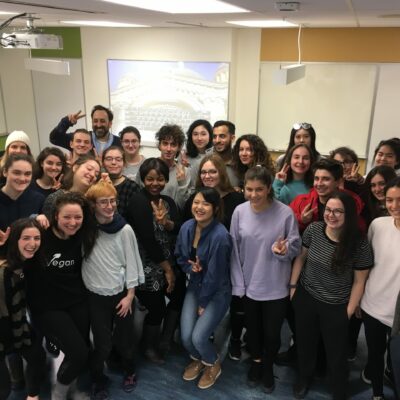 By learning and applying strategies that enhance peace within yourself, peace in your relationships, and peace with our environment, you can make a contribution to peace in our world. “Peace 365” is a foundational Complementary course for the Peace Studies Certificate. The course features panels of guest speakers on peace ideas and applications in different fields. Open to all students. Students will learn about different perspectives on peace from guest speakers from a wide variety of academic disciplines. Students will also have the opportunity to share their views on the real-life complex challenges of working towards peace. Activities will be varied and guided by student interest and skills. Evaluations will include journaling, panels, performances, and portfolios.
By learning and applying strategies that enhance peace within yourself, peace in your relationships, and peace with our environment, you can make a contribution to peace in our world. “Peace 365” is a foundational Complementary course for the Peace Studies Certificate. The course features panels of guest speakers on peace ideas and applications in different fields. Open to all students. Students will learn about different perspectives on peace from guest speakers from a wide variety of academic disciplines. Students will also have the opportunity to share their views on the real-life complex challenges of working towards peace. Activities will be varied and guided by student interest and skills. Evaluations will include journaling, panels, performances, and portfolios.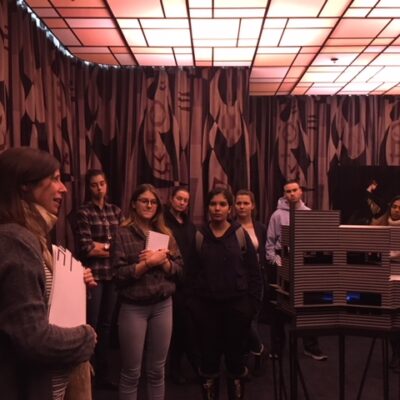 “Gender Matters” is a team-taught Complementary course of special interest to students in the Women’s & Gender Studies certificate. Includes multiple guest speakers and off-campus field trips. This course attempts to bring women’s/gender studies students and faculty into a learning community to explore how gender shapes our individual lives, societal institutions and the systems of privilege and exploitation that mark our world. Together we will analyze the problem of gender inequality, and its seeming intractability, from a variety of disciplinary and methodological perspectives. Following an interdisciplinary approach, students will analyze feminist research into the various manifestations of the problem, such as the epidemic of violence against women, toxic masculinities, the cultural representations of women’s bodies, and the ways in which gender intersects with other hierarchies in society. Students will be exposed to the diversity of women’s voices through the writings of key feminist thinkers and activists.
“Gender Matters” is a team-taught Complementary course of special interest to students in the Women’s & Gender Studies certificate. Includes multiple guest speakers and off-campus field trips. This course attempts to bring women’s/gender studies students and faculty into a learning community to explore how gender shapes our individual lives, societal institutions and the systems of privilege and exploitation that mark our world. Together we will analyze the problem of gender inequality, and its seeming intractability, from a variety of disciplinary and methodological perspectives. Following an interdisciplinary approach, students will analyze feminist research into the various manifestations of the problem, such as the epidemic of violence against women, toxic masculinities, the cultural representations of women’s bodies, and the ways in which gender intersects with other hierarchies in society. Students will be exposed to the diversity of women’s voices through the writings of key feminist thinkers and activists.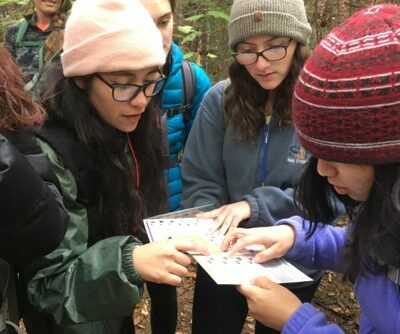 “Nature Revisited” is a team-taught pairing of two General Education requirements, English 103 Literary Themes and Physical Education 103. Open to students from all programs. Includes outdoor learning activities and excursions. In both courses, we address the following challenge: How can I develop a healthier and deeper relationship with the natural world? We do so by pursuing a variety of specific questions: What skills and attitudes can I develop to feel at home in the outdoors, enjoy and value nature, and reduce my environmental impact? What meditative and creative practices can I learn to reduce stress and increase my well-being? How can I explore my place in the world through stories, poems and essays about nature and ecology? How can I develop my creative & critical abilities in both art and writing in response to wild places and wild ideas? Students will participate in group and solo outdoor activities, classroom activities and discussions, and write and publish using a course blog. Work in one course helps students to succeed in the other.
“Nature Revisited” is a team-taught pairing of two General Education requirements, English 103 Literary Themes and Physical Education 103. Open to students from all programs. Includes outdoor learning activities and excursions. In both courses, we address the following challenge: How can I develop a healthier and deeper relationship with the natural world? We do so by pursuing a variety of specific questions: What skills and attitudes can I develop to feel at home in the outdoors, enjoy and value nature, and reduce my environmental impact? What meditative and creative practices can I learn to reduce stress and increase my well-being? How can I explore my place in the world through stories, poems and essays about nature and ecology? How can I develop my creative & critical abilities in both art and writing in response to wild places and wild ideas? Students will participate in group and solo outdoor activities, classroom activities and discussions, and write and publish using a course blog. Work in one course helps students to succeed in the other.
